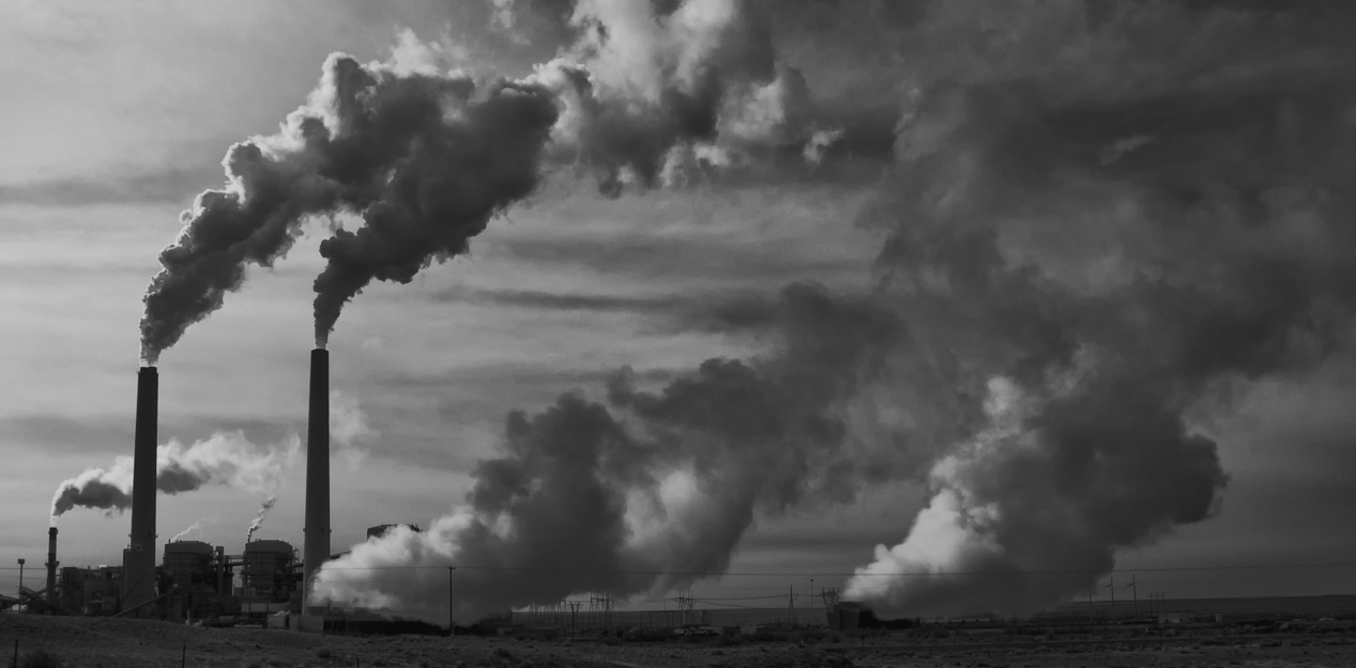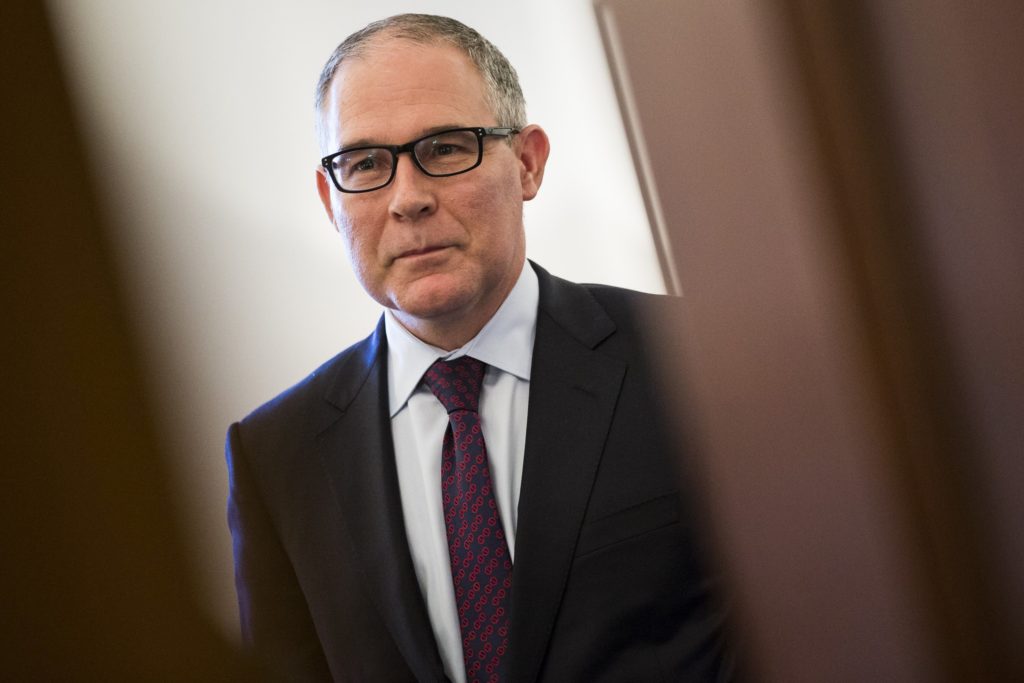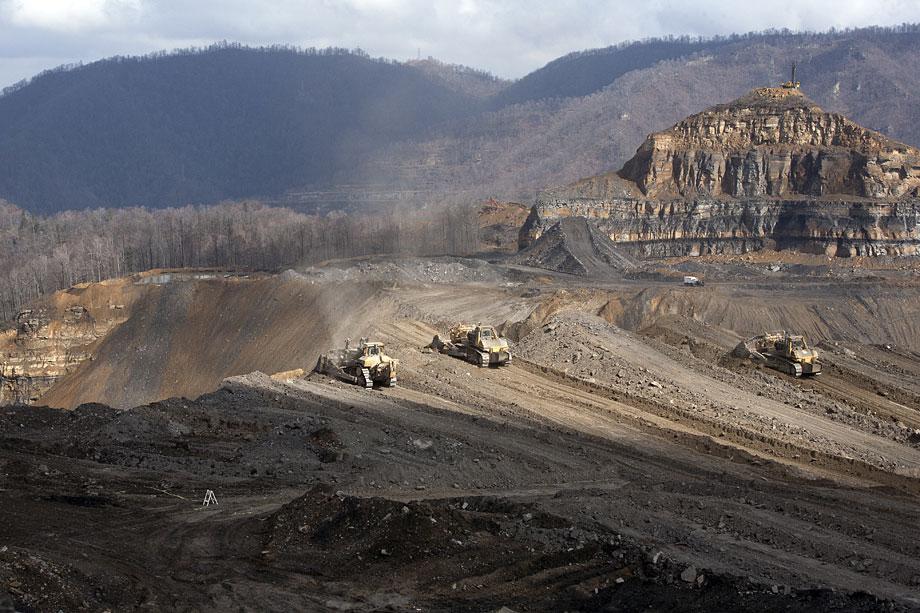A Closer Look at the Alleged “War on Coal” in the United States
 A coal-fired power plant in Arizona, photographed 2010. PDTillman/Wikipedia, CC BY
A coal-fired power plant in Arizona, photographed 2010. PDTillman/Wikipedia, CC BY
Lobbying in the political world is no rare undertaking. From pharmaceutical industries seeking to change drug laws to the National Rifle Association’s (NRA) aggressive rhetoric in their campaign to expand gun rights, politicians sometimes receive thousands of dollars in donation money from organizations that hope to affect policy in their favour. It’s something that’s becoming increasingly prominent: in the first half of 2017, lobbying expenditures increased almost two billion dollars.
While this alone is not cause for concern, the effects of special interest groups holding so much influence over positions of power should not be ignored, especially if the outcome of this influence has a direct impact on human health. A few weeks ago in early October, the Environmental Protection Agency (EPA) announced their decision to repeal the Obama-era Clean Power Plan (CPP), which imposes a 32% cut in carbon-dioxide emissions nationwide by incentivizing renewable resources and accelerating the transition from coal-fired power plants. “The war on coal is over,” said EPA-head Scott Pruitt, a known climate change-denier, a friend of the petroleum industry, and former governor of Oklahoma, a position in which he sued the EPA 14 times. No replacement was proposed to take over the CPP.

Coal is a notoriously dirty energy source and one of the largest sources of pollution in the United States, pouring a slew of harmful chemicals such as nitrogen oxides, sulfur oxides, mercury, and particulate matter into the atmosphere. These pollutants are known to cause acid rain, bioaccumulate in marine life, poison water sources, irritate the respiratory tract, and worsen asthma in children. As if this knowledge isn’t enough, less than three weeks after the EPA’s announcement an article published in the prestigious medical journal The Lancet linked 9 million premature deaths worldwide to pollution in the air, soil, and water — a number higher than AIDS, tuberculosis, and malaria combined (a fascinating interactive map for global pollution numbers can be found here). One can debate the science of climate change if they wish, but the harmful effects of pollution on human health is not a conjecture, making the EPA’s decision dangerous and unfounded.
Supporters of the EPA’s recent decision have cited the same arguments that are always made in support of coal, the first being federal overreach. In a recent interview with Time, Pruitt claimed that CPP is “deficient because it’s been questioned by the Supreme Court and the stay has been issued.” Indeed, the repeal proposal claims that the CPP exceeds the EPA’s statutory authority. However, the stay issued by the Supreme Court (led by Scott Pruitt himself) only ever questioned the legality of the CPP; no actual ruling was made on the issue.
The second argument in support of coal is the cost-effectiveness of it as an energy source, which is true at face value: coal is cheap to extract, cheap to ship, and cheap to burn. However, the overlooked costs of adverse chronic health outcomes and environmental is staggering. A report from the International Monetary Fund (IMF) estimates that environmental and health costs of burning fossil fuels come to around five trillion dollars a year, with coal responsible for just over half of that. This estimate does not necessarily account for the full societal burden of increasingly frequent droughts, floods, wildfires, and hurricanes.
The third argument for coal is its job market. Sadly, it is no mystery that the hardest-hit communities are often those comprised of low-income minorities. A 2012 report released by the National Association for the Advancement of Colored People (NAACP) analyzed spatial patterns in environmental injustices and found that those that roughly 40% of people that live within three miles of a coal-fired power plant in the United States are people of colour. These include African Americans and indigenous communities. This is massive yet rarely-discussed obstacle in the pursuit of clean energy: some of the aforementioned vulnerable communities are highly dependent on the coal sector. Many reservations in the United States have sought to develop coal mining in their regions to combat their high unemployment rates, often recognizing the harm this brings to the environment. Others are hesitant in the push for coal, citing environmental concerns and the potential impact on the land.
The poisonous relationship with coal that individuals in poverty-stricken regions make it a difficult subject to navigate. While the jobs are crucial for communities’ survival, who would say that the cumulative effect of damaged health, decreased quality-of-life, and the lack of a livable environment makes it a worthwhile endeavor? The Appalachians, a heavily mined and low-socioeconomic coal-reliant region, experience huge mortality rates associated with lung cancer and other chronic diseases, not to mention the potential transgenerational effects of the exposure to coal-related chemicals. One study estimates that apart from the numerous public health issues, the monetary burden of coal in this area alone is a staggering $74.6 billion.

Are there efforts to combat this disaster? Some agencies sought to offset the economic impact by going after coal companies and halting land leases used for mining. However, this approach under the new administration was quickly altered: in parts of the western United States, the Department of the Interior repealed a moratorium blocking new coal leases on federal land and halted an active study investigating the exploitation of royalty discounts.
No one would claim that the jobs from the coal industry are not important to families, but prolonging employment in the coal sector will do very little for the communities that thrive off of them: coal production has fallen heavily this past decade with no chance of a comeback, the falling cost of utility-scale solar energy and natural gas currently make them competitive with coal, coal exports have fallen dramatically, and the average number of coal-mine employees currently sits at roughly 65,000 — fewer than those employed by the fast food chain Arby’s. Consumer demand for clean energy and increasing automation are only going to intensify job losses in the industry further. Indeed, the International Institute for Sustainable Development (IISD) has cited that if coal is to remain competitive, it must move to more automation, not less, which inevitably brings about job loss anyway. In short, the EPA’s repeal of the CPP will have no impact on this market.
Furthermore, without a solid replacement plan to establish the administration’s agenda, harsher policies may be implemented by future administrations which may have even more devastating effects on coal and the communities it impacts. This often doesn’t stop the industry’s determination to lobby for mining rights. Richard Reavey, who oversees government relations for Cloud Peak Energy, one of the largest coal companies in the nation, claims that the attacks on the coal industry are nothing more than a liberal conspiracy, likening coal’s fate to cigarettes should the industry stop fighting.
One silver lining in this is that groups are fighting back. New York Attorney General Eric Schneiderman and a coalition of states have filed to sue the Trump’s administration over their repeal of the CPP. Apple, Amazon, Google, and Microsoft have come out against the decision. Many states such as Maryland, California, and other Western states have already promised to reduce harmful greenhouse gas emissions and have even started to push their own climate-friendly agenda. Indeed, under a federal administration that erases all discussion of climate change science from the public forum, states will have to pick up the torch (Maryland is currently suing the EPA over up-wind pollution from other states). Backed by the fury and determination of several environmental activist groups, many have already joined an alliance dedicated to meet the Paris Climate Accords after Trump announced his plan to withdraw in 2017.
The push to invigorate the coal industry is a waste of time, money, and effort. While it is true that many minorities are dependent on coal for jobs, classist indifference towards these low-income, coal-reliant regions results in them accumulating the worst health outcomes while the rest of the nation benefits. A more humane treatment would be progress: governments should focus on quickly transitioning to other economic activities to reduce the burden of job losses in the coal sector.
In some cases, progress is already being made: the Appalachian Regional Commission (ARC) has invested millions of dollars in retraining programs for coal miners, teaching them coding, farming, or construction. A healthy environment should be a human right. Weak environmental regulations damage the fragile ecosystem, lowers quality of life, and creates unbearable living conditions: skilled workers will be tempted to move elsewhere to settle down.
As previously mentioned, the EPA’s repeal will do little in terms of changing market forces. Perhaps Richard Reavey’s assessment is correct and the fight against the coal and petroleum industry is indeed a conspiracy designed to lower coal’s social acceptability with the public, destroying the industry like they did with tobacco. In fact, this may actually be an apt metaphor: cigarettes were killed because of the overwhelming evidence of their harmful effects on human lungs. Should the same be realized for coal, the world might find peace in securing cleaner air sooner rather than later.
Edited by Marissa Fortune.
